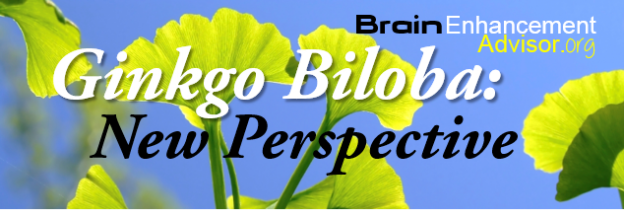
Ginkgo Biloba: New Prospective
Among nutraceuticals and nutritional bioactive compounds, the standardized ginkgo biloba extract is the most extensively clinically tested herbal-based substance for cognitive impairment, dementia, and Alzheimer’s disease. For many years, negative meta-analytic findings and discouraging results of preventive trials against cognitive impairment made scientists think that they were looking in the wrong place. However, in the last five years, some randomized controlled trials focusing particularly on mild cognitive impairment subgroups with neuropsychiatric symptoms have suggested a renowned role for ginkgo biloba.
Thus, in this 2015 review, meta-analytic findings suggested overall benefits of ginkgo biloba for stabilizing or slowing decline in cognition of subjects with cognitive impairment and dementia. While the safety and tolerability of the substance appeared to be excellent at different doses, subgroup analyses showed that these clinical benefits of ginkgo biloba were mainly associated with the 240 mg/day dose. More importantly, one of these meta-analyses showed clinical benefits in cognition, behavior, functional status, and global clinical change of the individuals. Thus, it was stated that 240 mg/day of ginkgo biloba is able to stabilize or slow decline in cognition, function, behavior, and global change at 22-26 weeks in cognitive impairment and dementia, especially for patients with neuropsychiatric symptoms.
In this other 2015 study, effects of Ginkgo biloba extract on cognitive functions as well as oxidative stress and brain-derived neurotrophic factor (BDNF) levels in aged female rats were investigated. Investigators concluded that supplementation improved cognitive functions by decreasing oxidative damage and increasing the BDNF level in aged female rats. Same results were found two years before, when ginkgo biloba extract attenuated hippocampal neuronal loss and cognitive dysfunction resulting from trimethyltin in mice. Thus, in this a 20-year follow-up population-based study, cognitive decline in a non-demented elderly population was lower in subjects who reported using ginkgo biloba than in those who did not.
Furthermore, In this open clinical pilot study, ginkgo biloba was administered to 20 children with ADHD over 3 to 5 weeks. Dosage was increased to a maximum of 240 mg daily if attention problems persisted. Improvements in focus, attention, concentration and impulse control were found, making scientists from the study suggest the substance as a promising ADHD supplement.
But what about healthy subjects? The controversy is still present, and while different studies argue about its inefficacy among the healthy, others point out the specific memory effects of the substance. Thus, according to these researchers gingko biloba improves free recall of appointments in middle-aged healthy volunteers, which requires high demands on self-initiated retrieval of learned material.
Overall, if not the most renowned nootropic, ginkgo leaf extract appears to be safe to use, with no excess side effects compared with placebo. Nevertheless, the substance may have undesirable effects for individuals with blood circulation disorders and those taking anticoagulants such as aspirin or warfarin, although recent studies have found ginkgo has little or no effect on the anticoagulant properties or pharmacodynamics of warfarin in healthy subjects.
“Why not?”

